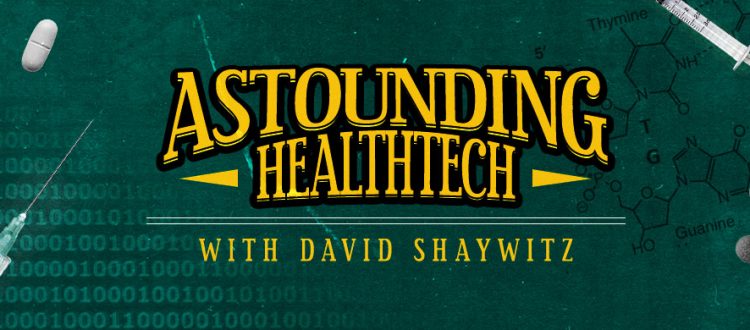Can You Improve Your Health Without Obsessing About It?

David Shaywitz
Can you improve your health without obsessing about it?
I’ve been, well, obsessing about this question as I continue to spend more time and mindshare in the world of healthy aging evangelists, enthusiasts, and entrepreneurs, longevity champions keen to guide you, and often test you, towards their conceptions of healthier aging.
(See this piece on the longevity boom, and this on the role of GLP-1RAs.)
Athletes and Converts
There seem to be two general flavors of longevity champions.
First are those who were always athletes, and who have long been interested in improving performance. Examples here include Australian Pete Hull, founder of the rapidly growing fitness chain Fitstop (interesting podcast interview here) and Will Ahmed, founder of Whoop, a wearable company. Hull was a competitive Motocross rider and later a personal trainer before he found his way to entrepreneurship; his gym focuses on “performance-based functional fitness.” Ahmed was a squash phenom at Harvard, and developed Whoop based on an interest in “understanding his body better.” The company’s tagline is “Power your performance with 24/7 data.”
But not all champions were passionate about health and longevity from a young age; some arrive at this epiphany after a personal revelation. Examples here include champions like Nick Norwitz and Dr. Peter Attia. Norwitz writes that his interest in metabolism derived from his struggles with severe inflammatory bowel disease; his successful management of this condition with a ketogenic diet after conventional approaches failed sparked his curiosity about nutrition and metabolism.
Attia, while apparently always athletic, traces his epiphany to a specific date — September 8, 2009, as he describes in Outlive – on which he recognized (spurred, he writes, by a comment from his wife) that he had become “not thin Peter,” and metabolically unhealthy. Consequently, he, also, “quickly became obsessed with understanding nutrition and metabolism.”
Attia’s obsession (which seems unquestionably the correct term here) is readily apparent from his book, as he describes the many components of healthy eating, movement, breathing, and sleeping. Each topic (like movement) ramifies into subtopics (cardiovascular, strength, balance), each with their own subtopics (VO2 max, Zone 2 exercise, lactate threshold, etc). His podcasts can get into even more granular detail, such as this discussion with researcher and Olympic cycling coach Inigo San-Millan about the intricacies of Zone 2.
Optimizing Performance
This approach to longevity – focused on measurement and optimization of multiple parameters in effort to improve “performance” in many individual areas, and ultimately overall, obviously has a familiar ring to it. Ask the CEOs of Fortune 500 companies how they operationally drive improvements, and they’ll likely tell you something similar, explaining how they deconstruct a corporate mission into constituent activities, set relevant goals, measure performance and evaluate progress.
While this approach may help improve the bottom line of established corporations and help good athletes become great, I’m less sure this approach is actually likely to help the people who have the most to gain: those who are not at particularly focused on wellness, for whom the greatest challenge is getting started.
(In a similar way, perhaps, it’s generally unhelpful for a startup to fixate on operational efficiencies while it’s still searching for product-market fit.)
But even for those who are already interested in wellness, the amount of information on offer from longevity gurus is utterly overwhelming.
To pick a (real) example, a longevity champion might discuss the health benefits of saunas on one day, of fermented foods on the next, and of saffron the day after that. The issue isn’t necessarily the quality of the advice (the examples above actually include relevant references from the biomedical literature, although many champions are less rigorous). Rather, the problem is that of all the many things someone could potentially focus on to improve health, in the face of so much incoming information, how is someone supposed to even begin?
A Need For Prioritization
This dilemma reminds me very much of the challenge facing already busy physicians who are confronted with continuously expanding lists of mandated topics for each visit; while in theory it might be helpful to address all, in practice, this isn’t feasible – as the late Bill Gardner so thoughtfully discussed a decade ago, and as I discussed in The Bulwark in the context of COVID, here.
Gardner was inspired by the example of the “flood” of mandates facing military officials, leading to “ethical fading,” where corners inevitably are cut, rationalizations are “rampant,” and culture is corroded. To avoid this, as Dr. David Blumenthal advocated, you need to ruthlessly prioritize, and establish core priorities (or metrics) upon which to focus.
Similarly, many who might benefit from the pursuit of selective wellness advice are likely finding themselves overwhelmed and paralyzed by the volume (and lately, velocity) of well-intended advice.
In the future, AI might help us navigate this flood of information and data. As the always-eloquent Nathan Price (a professor at the Buck Institute for Research on Aging, CSO of Thorne, and co-author, with Lee Hood, of the 2023 book, The Age of Scientific Wellness) argues in a fascinating talk at the Buck, AI could provide a mechanism to integrate extensive personal data (include data collected by ever-more powerful wearables, as Subha Madhavan and I recently discussed) with the latest scientific research to deliver personalized health recommendations.
But today, what’s desperately needed is a fundamentally different approach to wellness, an approach that doesn’t seek to enumerate, measure, and optimize the vast number of factors and parameters that might have some effect on your health – where most longevity programs seem focused. Rather, we should emphasize a few critical high-value goals, where success could have the most significant impact on health.
Given both the prevalence of obesity and associated metabolic dysfunction — which seems to impact all the major diseases of aging (the “Four Horseman,” to use Attia’s phrasing) — and the remarkably efficacy of GLP-1RA medicines, this seems like a particularly promising place to start. As I’ve argued, success here is likely to generate an “agentic dividend” which could then be utilized to begin to motivate other health-promoting activities, kicking off a virtuous cycle. Initiating any sort of regular movement seems like a great goal to pursue next.
I’d argue that even beyond the value of motivating the many who don’t yet pursue health very actively, it’s also critical to create opportunities that speak to the many people who are keenly interested in health but are quite reasonably turned off by the narcissistic obsession with performance that seems to characterize longevity champions and enthusiasts.
There needs to be room for people who want to be healthier, but do not want the pursuit of health and obsession with health metrics and health blogs and health podcasts and health influencers to occupy a major portion of their lives — a degree of balance and wisdom of prioritization that in itself seems … rather healthy.
I envision a health enablement program that supports rather than overwhelms, meeting people where they are and illuminating the highest value opportunities for health improvement (like GLP-1RAs, for many, also low impact exercise to start with). Ideally this would be coupled with content that generally is not about health, fitness, or performance.
Instead, the program would focus on:
- Energizing and encouraging participants, fostering a sense of agency and optimism;
- Cultivating a sense of community and shared purpose;
- Celebrating the pursuit of individual interests and passions, rather than making everything about micromanaging your health.
I see a particular need and opportunity for such an approach among the “Vanguard” 50+ highly agentic generation I described here.
And Yet…
This would be a great place to wrap, but I feel obliged to present a bit of a devil’s advocate response as well – inevitably informed by my own experiences. And what I’ve seen (as I’ve described in part here and here) is that the lifestyle changes that improved health may require are inherently disruptive — which of course is also the point.
For example, to transition durably – even with the help of GLP-1RAs – from a typical western diet to a lower calorie diet (ideally healthier as well) can require a profound shift from habits and customs developed over a lifetime. This is an underappreciated challenge. Moreover, when you are eating deliberately, and avoiding alcohol on most occasions, you’re probably a lot less fun socially, and can be a bit of a wet blanket if everyone is drinking beer and tearing into chips, and you’re drinking water while nibbling on celery.
In addition, as much as I love my exercise routine – which includes cardiovascular (I’m partial to outdoor jogging when it’s nice and Peloton when it’s not), strength, and balance (including twice-weekly pilates) – it’s a significant amount of time, about an hour a day, and I’m typically waking up at 4:30am to get through it before my regular day begins. This also means that when possible, I tend to go to bed fairly early to ensure a solid evening of sleep, another vital health priority.
While these practices may be extremely disciplined, it also means a lot of my life is structured around a significant commitment to diet, exercise, and sleep, which is unlikely to be ideal for many.
My hope is that it’s possible to make progress towards improved health without committing to everything, at least not all at once. Ideally (as I’ve described), progress on the eating front, likely abetted by GLP-1RAs, can create the seeds of success elsewhere.
But I also recognize – having observed this in others and experienced it on my own – how easy it is to fool yourself. We’ve all seen people who devour cake yet comfort themselves by choosing to wash it down with a diet coke, for example, or decide that a walk from the car to the door constitutes meaningful exercise.
While I’d like to say “at least that’s a good start,” I’m not sure it usually is; I suspect there’s a threshold effect, and if you don’t commit to a degree of change that involves activities that are at least somewhat unfamiliar, and probably uncomfortable, it might not be enough.
Bottom line is that while healthy aging may not require the obsession and immersion exemplified by many of its greatest champions, it requires more than good intentions, pro forma effort, or a magic jab alone. The challenge, inevitably, is discovering the right balance, and finding a way to age healthily while ensuring we’re using our precious time for something more meaningful than simply the continued pursuit of more of it.





